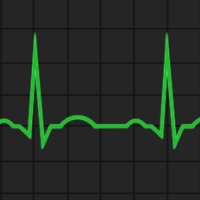- About Us
- Columns
- Letters
- Cartoons
- The Udder Limits
- Archives
- Ezy Reading Archive
- 2024 Cud Archives
- 2023 Cud Archives
- 2022 Cud Archives
- 2021 Cud Archives
- 2020 Cud Archives
- 2015-2019
- 2010-2014
- 2004-2009
 |
Cud Flashes In the Pan |
This month’s theme:
“The End of an Era”
I wrote this story many years ago, and it was published in an online military-oriented journal. This made sense, because it seems military-oriented. But it’s interesting how people interpret the themes here. Is it about hero worship of the military? Is it about the dying of traditions? Is it about military ego? Is it about human ego in general? Is it about the nature of the press? Is it about the tragedy of living for too long? Any of the above, all of the above, none of the above? That’s up to you.
“The End of an Era”
Dystopian/Utopian
By David M. Fitzpatrick
Robert Armstrong stood in full dress uniform, holding an American flag folded neatly into a triangular field of blue with white stars, waiting for General John Franklin to die.
Already, the general’s breathing was irregular—short and stifled, but not quite gasping yet. They had done all they could, the doctors had told Armstrong. Five hundred years ago, they reminded him, people were lucky to live to one hundred. A thousand years ago they rarely trundled beyond fifty. That John had seen his three hundredth birthday two years before was something for which everyone should be grateful.
Armstrong had a hard time feeling grateful. Certainly, it was good that everyone lived a damn long time nowadays, and he couldn’t imagine what it would be like to have died off by age one hundred. He’d have missed the past two centuries, never known his descendants—sixteen generations since his own children had been born.
Armstrong surveyed the hospital room for the millionth time since his vigil had begun four days earlier. It was antiseptic, synthetic, boring. The window was a nondescript square portal overlooking gray clouds below. Four hundred stories up seemed ludicrous to him, but people hardly gave the ground a second thought anymore. Like the old controllers used to say when air traffic got too congested and nobody could land, “Stack ‘em, rack ‘em, and pack ‘em,” or something like that. It was so long ago he couldn’t remember quite how it went. That was back in the early twenty-first century, when he was a kid, and when jet contrails still decorated the skies.
He heard the whooshing sound of the door sliding open behind him. He turned stiffly in what used to be called an about-face as a young lady stepped into the room. She offered a friendly smile as the door slid closed. “Citizen Armstrong, I presume?”
He stood at prompt attention and replied with icy coldness, “Major Armstrong, if you please, ma’am.”
She regarded him thoughtfully and then nodded. “My mistake, sir. You served in the military in the United States some time ago, didn’t you? With Citizen… with General Franklin?”
“The General was my commanding officer during World War Three.”
“That’s fascinating,” she said, shaking her head in awe. “That was so long ago… I understand there’s a special story in this room.”
Something clicked into place in Armstrong’s brain. “You must be a reporter.”
“I’m a member of the Press Corps, if that’s what you mean. Right here…” She fumbled for her translucent ID crystal. “Pressperson Tarina Wastauk. Officially authorized by the World Government. You can check my crystal.”
“Of course,” he said, and about-faced to resume his vigil over Franklin. “I have no desire to check your crystal, Pressperson Wastauk. I am not interested in any sort of interview.”
“But you must,” she said, her face blank with surprise at his indignance.
Armstrong spun on her with gritted teeth, and blazing eyes, and she stepped back in alarm.
“You’re… angry?” she said, confused.
He sighed and relaxed. “No, Pressperson Wastauk. I’ve spent enough of my life being angry and remorseful about things. Instead, let me try to change them. First, freedom is the one thing that remains, even today. Although it has been infringed upon countless ways in the past many centuries, as of yet there is no law requiring my submission for interview by a member of the Press Corps.”
She reddened, a sharp contrast to the angular black haircut framing her face. “I didn’t mean it that way,” she said. “That was inappropriate, and I’m sorry. What I meant was… well, to put it plainly, when Citizen—when General Franklin finally passes on, you’ll be the only one left. The only one out of billions. The people have a right to know what that feels like.”
“They have no such right,” he said through clenched teeth. “My feelings are mine alone.”
“I’m sorry—I’ve erred again. I should have said the people have a deep desire to hear what that feels like to you.”
“The people could care less.”
“Not all of them. Some want to know. I want to know. Future generations should know.”
He heard the labored breathing of the General. “It’s odd, you know. This planet has seen no conflict at all since the Third World War. It was the war of great peace, ironically; it bound us together as a united planet—as the unified human race we are today. Barbaric may the concept of war seem today, but countless people died in that barbarism to that ensure nothing like it would ever happen again. The importance of great military leaders has been completely forgotten over the centuries, and now this man—the last of the great military leaders responsible for this nearly Utopian society we enjoy today—lies here, all but alone, unconsciously fighting for every one of his last, weak breaths.”
He turned his head to her, his look a paradoxical mixture of cold harshness and warm sadness. “So here I stand, in a death watch over my comrade and commander, and who does the government send to recognize this event? A Pressperson.”
“I don’t understand,” she said, and the confusion painted on her face was true. “It’s a story of interest. The Press is responsible for such things. Who else would they send?”
“They should send an honor guard and a military band. They should send troops in dress uniform and the President of the United States to oversee the ceremony.”
“But… they couldn’t send any of those things. There hasn’t been a military for centuries, or a President of the United States, or even a United States—”
“Then they find people who care,” he said with a light sort of ferocity. “They find people who understand and they find the right uniforms, and they give such a man a sendoff as he deserves. And the World Council attends in lieu of the President, and they honor this man as he should be honored.”
“Wouldn’t that be… fake?”
“It would be sincere,” he said. “And that’s what would matter.”
“I would think that—”
“Do you want your interview, Pressperson Wastauk, or do you intend to chatter throughout?”
She pursed her lips, ceasing her chattering.
He took a deep breath, checked the readout on Franklin’s life monitor, and exhaled slowly. “After the War, politics changed. We were enthralled by the prospect of universal peace. The World Government was born. With a single planetary police force, militaries were mothballed—but soldiers from all nations were, for a time, honored for their service in the war that ultimately unified the planet.
“Throughout history, those who fought were often forgotten. In the United States, the Veterans of Foreign Wars was formed in 1899 to ensure that combatants stayed connected. After World War Two, membership skyrocketed, and so did the number of VFW posts.”
“Posts?”
“Meeting places. Veterans would meet and ensure that the memory of those who fought and died defending our country and our freedom would not fade. Posts sprang up everywhere. Membership increased. So did the wars: Korea, Vietnam, Iraq; all useless and pointless wars, without justification. But the veterans supported each other regardless.
“But vets began dying off. Posts began closing because there was no need for them. The younger vets had no desire to hang out with old soldiers, or just didn’t care. Maybe that was to be expected, since they were veterans of unjustified wars condemned by the public.
“Then came World War Three. We fought, we died, and we kept fighting. It was a horrible atrocity, a true worldwide war. Every nation on Earth was involved, and there were no clear good guys and bad guys. Five major allied groups all wanted different things—and there were factions within allies, splinter groups within factions. It was a convoluted mess. When it was over, the VFW saw membership the likes of which had never been imagined. After all, the United States sent sixty million soldiers to war and almost half of them died.”
“So they brought back the posts,” Wastauk said. The entire scene was, of course, being recorded in three-dimensional VR by her scanner, likely embedded in the blue headband she wore. “They must have been everywhere.”
“They were. There wasn’t a city, town, village, or hamlet that didn’t have a post teeming with members. They weren’t planning on forgetting or being forgotten. But there were two flaws in their reasoning. The first was that keeping memories alive is easy when you’re alive. We’d abolished such natural killers as cancer and disease, but they eventually died off over the next two hundred fifty years.”
“What was the second flaw?”
“They believed that even when they were gone, they wouldn’t be forgotten. But the people were thrust into a unified, peaceful world. The military was defunct, veterans forgotten. The people forgot who gave them that peace, who fought and died to ensure the planet’s survival. Even the memories of war were too embarrassing. Nobody wanted to admit that we were so savage, so barbaric… so recently. They pushed it all out of their thoughts and went on with their lives without us.
“And so we went, for over two centuries, and then the deaths finally started happening. These treatments extend life but have to be applied when you’re young. You, Pressperson Wastauk, will likely live for six hundred years; but for us, three hundred is about it. We’ve lived out our lives. And General Franklin has lived out his.”
She regarded the raggedly breathing corpse of the General as if noticing him for the first time. Her eyes darkened, her face following suit. “Is there nothing else to do for him, Major?”
“It has all been done,” Armstrong said. “He was a stubborn one, the general. Didn’t get his first treatment until he was over sixty. Waited too long, I suppose. So here he is, end of the line. Every possible medical procedure has been done. There’s nothing left to do now but watch him die. And I’m not so sure that anyone besides me will understand just how utterly terrible a loss it is.”
“I think I understand,” she said quietly, and for a moment, Armstrong thought maybe she did.
She shook herself back to Pressperson status. “Major, this is the point I’m after today. Once he goes, you’ll be the last soldier of the Third World War left on Earth. How does that make you feel?”
“How does it make me feel,” he mused with a furrowed brow. “I’ve watched as millions of soldiers died off, their service forgotten. I’ve watched posts close and others combine to keep the ranks full. I’ve watched them thin out even more. Along the way, I’ve watched this free world build and advance and live longer, all the while forgetting even more as the years passed. I’ve watched as nobody but us realized, ten years ago, that there were only a hundred of us left. And I’m watching today’s society know nothing of us, nor care anything about us.”
He turned and looked into her soft blue eyes, and she met his stark gaze. Slowly, she shook her head. “No, Major, that isn’t all that this is about. You’re taking me for some young, brash Pressperson, and not giving me any further credit.”
“You seem conscientious of what I’m telling you,” he agreed, “but you’re still a young, brash Pressperson.”
“I am two hundred seventy years old,” she said.
He stopped cold. His hands shook for a moment and he almost dropped the flag he was holding. “What?”
“I had my first treatment at birth,” she said, “so I look young. But I remember the aftermath of the War, even if I didn’t witness it. I’m an old gal, Major Armstrong, who remembers why they fought and died. One who understands the importance of what is happening here. And I really am interested in letting the people know.”
The life monitor sounded an alert then and Armstrong turned back to the bed where Franklin lay. The gasping sounds had ceased and the life monitor indicated so many things: respiratory arrest, cardiac arrest, a cascade of failures. Franklin’s body had finally been unable to keep going, and the machines could do no more for it. It had shut down.
The alert stopped and all was silent. Armstrong marched forward, stopped, and produced the flag that he held. Gently, he laid the folded cloth down atop the General’s chest. He took a measured step back, at attention, and snapped a rigid salute over the body of the last great hero of the War of Peace. Then he dropped the salute, snapped one foot behind the other, and did an abrupt about-face.
“You are still recording?” he asked, knowing the answer.
“Yes.”
“Five-star General John Michael Franklin has died,” he spoke to the invisible camera. “He leaves me the last surviving soldier of the Third World War. He leaves me in absolute sorrow for the ignorance and uncaring of the people of this planet. We have been forgotten, and it seems nothing can be done to make anyone remember.
“But I refuse to be left like this, a side story on the Press,” he said, his voice loud and sure. “We will not be remembered as some fluff piece about the last of our kind. We gave this planet its freedom. Give history its due respect.”
He once again about-faced to stand guard over his fallen comrade. Wastauk sighed deeply behind him. “Major, that was very inspiring. I promise you this will be no fluff piece, as you called it. People will hear about you. People will know about you. I’ll work to revitalize interest in that War, in our history.”
“I know you will,” Armstrong said.
* * *
Tarina Wastauk was thinking of how to part company with the Major when suddenly he saluted again, but right away she knew there was something not quite right about that salute. Before, he had saluted as soldiers always used to, with his right hand. Now he did so with his left.
Before she could find a way to ask him why, there was a terrible sound of thunder. She screamed, staggering back and into the door, collapsing, even as Major Armstrong went down. His blood and brain tissue hit the walls, the floor, and Tarina, and his lifeless body hit the tile.
* * *
The man in white sat down in the waiting area across from Tarina. “Citizen Wastauk? I’m Physician Stokes. I headed the medical-care unit that serviced Citizen Armstrong.”
“MAJOR Armstrong,” she corrected.
“Of course.”
“He’s dead, isn’t he?”
“I’m afraid so. Some sort of weapon—an antique, the likes of which nobody has seen in centuries. There was nothing we could do.”
“A very tough break,” she said. “But he’ll have what he wanted. People will remember this story.”
“Ah… you’re a Pressperson?” He seemed surprised and pleased.
“Absolutely.” She stood, collecting her bag. “Thank you, Physician Stokes. I have to be going. More stories.”
He stood with her, his face eager. “If you’re interested, Pressperson Wastauk, I’ve been working on a little project in my spare time. It might be newsworthy. An artificial brain. It could be the breakthrough to immortality—”
“I’m afraid that isn’t my specialty. I’d be happy to refer the story to Pressperson Rowell, though, in the Bureau of Medical Technology Stories.”
“Oh, I’m sorry,” Stokes said. “I assumed you were here with interest in Franklin’s medical treatment.”
“No, I’m from the Bureau of Last Survivors Stories,” she explained. “General Franklin’s death left Major Armstrong the last surviving military member. And now he’s gone. What a double-interest story that will make. But now I have to be on the other side of the planet to interview a citizen who is the last survivor of the Moraji concentration camps during the War. Ironic, considering today’s story.”
“Indeed,” Stokes said.
“After that, I’m off to Mars for an interview in the morning with Councilor Martel, last survivor of the old American Senate, disbanded forty years after the end of the War.”
“An interesting job you have,” Stokes said.
“It is indeed. I’ll let Pressperson Rowell know to look you up. But duty calls. There are so many last survivors of so many things, and only three Presspeople to cover them all.”
Stokes offered a hand. “A pleasure. I’ll look forward to reading this story.”
“It’ll be a good one,” she said. “I could write pages and pages on this. Although I’m sure the editorial regimen will cut it down a little bit.”
* * *
Sidebar story appearing on the World Government Official Press Site:
Last WW3 soldier dead
(WG) Citizen John Franklin, one of two last survivors from WW3, died yesterday. Upon Franklin’s death, Citizen Robert Armstrong was then the last survivor. Armstrong then used an antique handgun to commit suicide. Physicians were unable to revive him.
-Bureau of Last Survivors Stories, Pressperson Tarina Wastauk
David M. Fitzpatrick is a fiction writer in Maine, USA. His many short stories have appeared in print magazines and anthologies around the world. He writes for a newspaper, writes fiction, edits anthologies, and teaches creative writing. Visit him at www.fitz42.net/writer to learn more.
